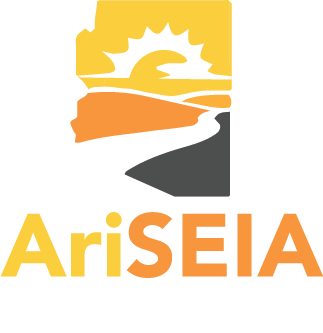|
Arizona Corporation Commission
1200 W. Washington Street Phoenix, AZ 85007 Re: Application of APS & TEP for Approval of Revisions to Resource Comparison Proxy (Dockets No. E-01345A-23-0110 & E-01933A-23-0108) Chairman and Commissioners, Vote Solar, Solar United Neighbors, and the Arizona Solar Energy Industries Association (AriSEIA) urge you to support Arizona families and businesses who wish to invest in their own energy resources by reducing the proposed step down of Arizona Public Service’s (APS) and Tucson Electric Power’s (TEP) Resource Comparison Proxy (RCP) rate for 2023. The Commission outlined directions for calculating the RCP in Decision 75859, and the Plan of Administration for each utility’s RCP rate requires the utility to submit an updated RCP calculation annually for Commission approval and specifies that the RCP “may not be reduced by more than 10% each year.”[1] The Commission has the opportunity to provide consumers looking to save money on their energy bill with relief by reducing the RCP step down less than 10%. This also provides the Commission with the opportunity to support businesses in Arizona by saving jobs. Arizona families and businesses continue to face unusual economic challenges driving up the cost of basic necessities like electricity. Over the last year, consumers experienced a 6% increase in electricity costs[2] following on the heels of a 12% increase in electricity costs the year prior, the largest 12 month increase in nearly 20 years.[3] Rooftop solar is an important tool that ratepayers can utilize to help reduce their utility bills and increase energy resiliency at their home. As interest rates continue to increase to their highest levels in decades, Arizona families and businesses who must rely on long-term financing to afford the upfront cost of a solar installation may find that going solar is no longer an affordable option. Currently, any homeowner looking to finance rooftop solar will find interest rates as high as 11.99%. This makes solar very unaffordable for any homeowner who cannot buy their system outright. Any further reductions of the RCP will reduce the number of Arizona households who are able to benefit from their private investment in solar. Additionally, further reductions to the RCP will depress solar adoption in Arizona and limit opportunities to leverage distributed energy resources for demand response purposes to benefit grid resiliency. Increasingly, customers who invest in solar choose to pair their installation with distributed battery storage. This creates an opportunity for utilities to leverage customer-sited battery storage as a “virtual power plant” that can help provide reliable power to the grid in the evening hours or during summer heat waves. As investments in solar become less affordable, the growth of other innovative distributed energy resources like battery storage will stagnate. Further, there are more than 300 solar companies operating in Arizona. These companies employ more than 8,000 people in Arizona alone and have contributed $16.5 billion dollars to the state, with $1.5 billion invested just last year.[4] Residential rooftop solar installers are reporting a nearly 20% decline in business year over year since 2022, with nearly 35% declines in revenue. This is likely to result in workforce reductions of 20%. Individual installers are considering job cuts of dozens of jobs with an average, annual pay of $62,500 a year. A decline in solar will also result in declines in the roofing industry and other energy efficiency contractors, such as HVAC, windows, and insulation. High interest rates paired with a declining export rate will exacerbate this problem, resulting in a significant impact to the state’s economy. We respectfully request that the Commission reduce the step downs proposed by APS and TEP, as included within the Staff’s proposed order, in an effort to support families and businesses and provide them with an extended opportunity to capitalize on the power of the sun to reduce their energy bills. Thank you for your consideration of this important matter. Sincerely, Autumn T. Johnson Executive Director AriSEIA [email protected] Adrian Keller Arizona Program Director Solar United Neighbors (SUN) [email protected] Kate Bowman Interior West Regulatory Director Vote Solar [email protected] [1] See Appendix H, Arizona Corporation Commission, Decision No. 76295, (Aug. 18, 2017), https://docket.images.azcc.gov/0000182160.pdf?i=1657139837798 (emphasis added). [2] U.S. Bureau of Labor Statistics, Consumer Price Index Summary, (May 2023), https://www.bls.gov/news.release/cpi.nr0.htm. [3] U.S. Bureau of Labor Statistics, Consumer Prices Up 8.6 percent over year ended May 2022, TED: The Economics Daily, (June 14, 2022), https://www.bls.gov/opub/ted/2022/consumer-prices-up-8-6-percent-over-year-ended-may-2022.htm. [4] Solar Energy Industries Association (SEIA), Arizona Solar Census, Q1 2023, available here https://www.seia.org/sites/default/files/2023-07/Arizona.pdf.
0 Comments
Leave a Reply. |
AriSEIA NewsKeep up with the latest solar energy news! Archives
July 2024
Categories
All
|
NEWS
See what AriSEIA is up to on the policy front.
The Arizona Solar Energy Industries Association (AriSEIA) is a 501(c)(6) non-profit trade association representing the solar, storage, and electrification industry, solar-friendly businesses, and others interested in advancing complementary technologies in Arizona. The group's focus is on education, professionalism and promotion of public policies that support deployment of solar, storage, and electrification technologies and renewable energy job growth and creation. |
FOLLOW Us |
Copyright © 2019 AriSEIA - All Rights Reserved

 RSS Feed
RSS Feed
